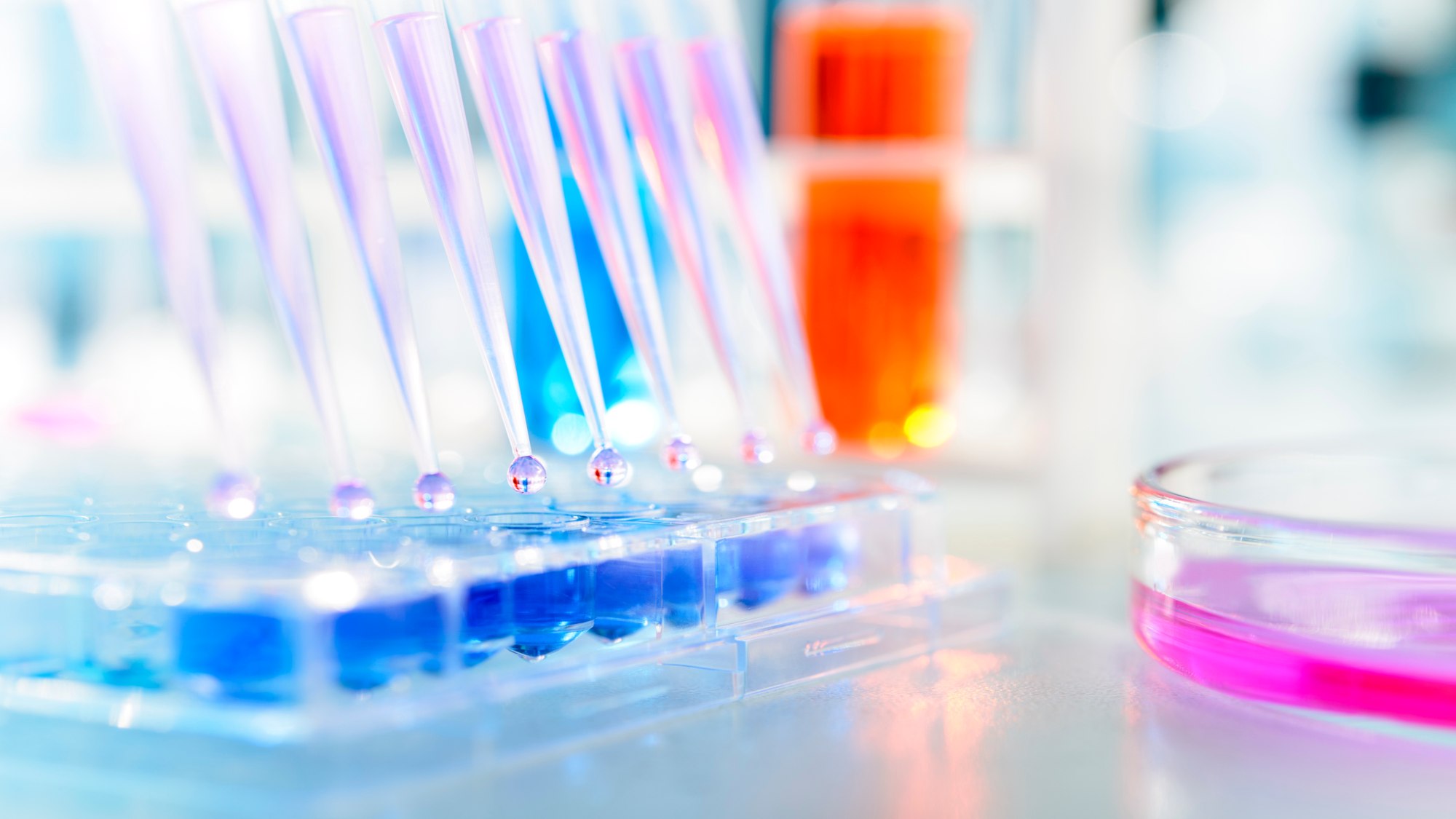Biotechnology in cosmetics: Peptides in skincare

22 Sep 2025
Enabling Quality for Biotech Beauty Products – Part 1
Biotechnology is reshaping the cosmetics industry, enabling the development of functional ingredients with high purity, consistency, and sustainability. Among these innovations, peptides stand out as a versatile class of bioactive molecules. Short chains of amino acids linked by peptide bonds, peptides serve as messengers within the skin, triggering biological responses that promote rejuvenation, repair, and protection. Today, advances in biotechnology allow the efficient production and refinement of peptides for cosmetic formulations, supporting the growing consumer demand for high-performance and naturally inspired products.
Sources and Production
Peptides can be derived from diverse natural sources such as plants, marine organisms, fungi, and animal proteins. Through biotechnological methods like enzymatic hydrolysis, microbial fermentation, chemical digestion, and recombinant production, these molecules can be produced at scale with tight control. Downstream purification help ensure that peptides meet strict standards of consistency and quality.
With hydrolysis processes, larger proteins are hydrolyzed into smaller, soluble peptide fractions, improving their compatibility with creams, gels, serums, and emulsions. Hydrolyzed collagen is prepared by breaking down large collagen proteins into smaller peptides. This process, known as hydrolysis, can be achieved either enzymatically (where an enzyme is used to cleave the peptide bonds within collagen) or chemically. Based on innovators’ claims and their published research, collagen-derived peptides, with their unique amino acid profile of approximately 35% glycine, 10% hydroxyproline, and 12% proline, are reported to improve moisture retention, enhance skin viscoelasticity, and strengthen the skin barrier.
Peptides in Skin Care
Cosmetic peptides play multiple roles in skin health(1):
- Signal peptides stimulate collagen synthesis, improving firmness and elasticity.
- Carrier peptides stabilize and deliver essential trace elements, such as copper, that aid wound healing.
- Neurotransmitter-inhibiting peptides help relax facial muscles, softening expression lines and wrinkles.
Beyond these categories, peptides also reported to reduce inflammation, accelerate tissue repair, and improve skin texture, making them indispensable for anti-aging and restorative skincare.
Enhancing Quality & Safety: Analytical Testing
Specialised testing for peptide ingredients for cosmetic materials drives insight into ingredient quality and underpins product performance and safety. Using sensitive assays, such as the CBQCA method or the colorimetric BCA assay, it is possible to quantify total protein levels in raw materials. The CBQCA method is highly sensitive and specific and uses reagent is CBQCA (3-(4-carboxybenzoyl) quinoline-2-carboxaldehyde) to react with primary amines to form a fluorescent product and the fluorescence is then measured using a fluorescence microplate reader or other fluorometers.
This rigorous testing helps to ensure consistency and quality control. Reliable protein measurements enable precise formulation dosing and batch-to-batch consistency. This helps to ensure that cosmetic products deliver intended peptide activity, whether for firming, repair, or anti-aging, without variability that can undermine efficacy or consumer trust.
By integrating these analytical services into the development and quality control process, cosmetic manufacturers can innovate with confidence, ensuring that their peptide-based products meet quality standards.
Conclusion
As biotechnology advances, peptide innovation continues to expand, offering opportunities for tailored formulations that address skin appearance and health. These multifunctional molecules enhance product efficacy while meeting consumer demand for safe and sustainable ingredients. By combining biotechnology knowledge with rigorous analytical testing, innovators can push forward the future of high-quality effective peptide-based cosmetics with confidence.
If you would like to find out more on this topic please find us online:
Testing Peptides in Cosmetics
Cosmetics Testing
Collagen Analysis
Hyaluronic Acid Testing Laboratory – Analytical & Microbiology QC
Chitosan in Cosmetics
Ref:
Pintea, A.; Manea, A.; Pintea, C.; Vlad, R.-A.; Bîrsan, M.; Antonoaea, P.; Rédai, E.M.; Ciurba, A. Peptides: Emerging Candidates for the Prevention and Treatment of Skin Senescence: A Review. Biomolecules 2025, 15, 88.
